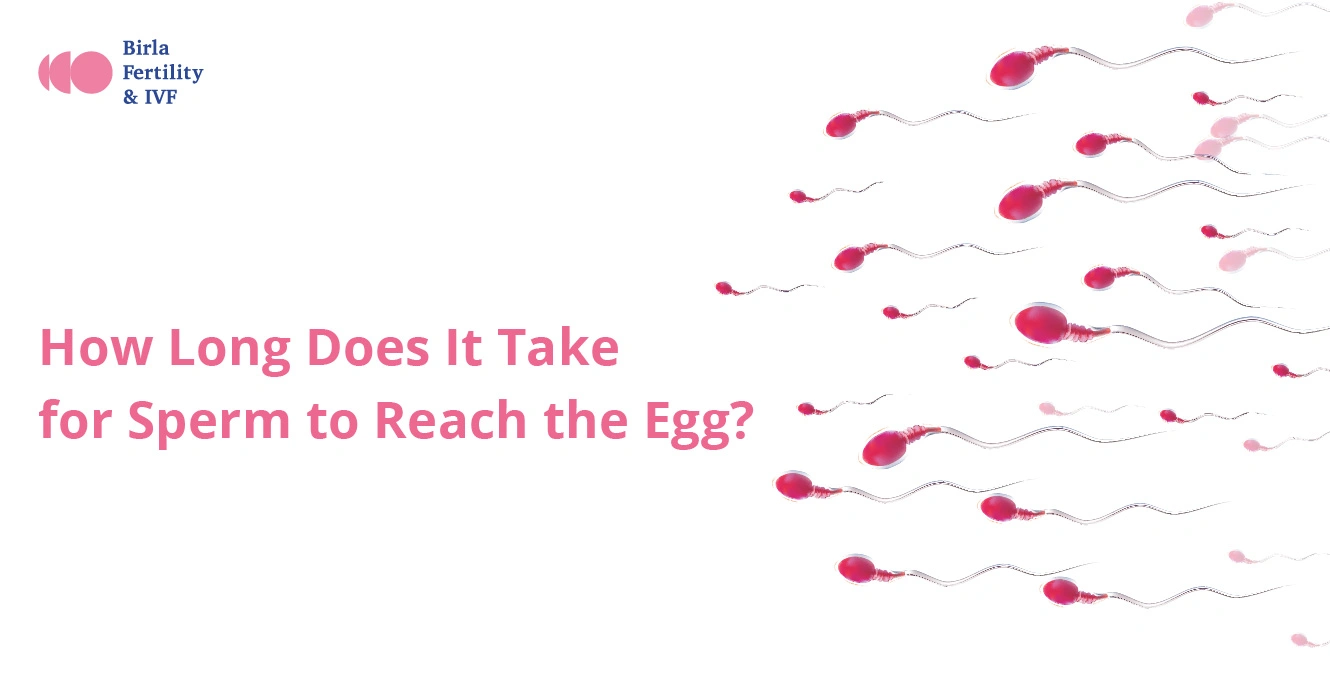Stress and Infertility: How to Cope with the Psychological Impact?
Being diagnosed with infertility can be one of the toughest situations you can find yourself in. You face an overwhelming reality check under such circumstances. You may feel that things in your life are beyond your control. It can be frustrating, and you could go through a number of emotions – anger, guilt, shock, denial – and even depression. Stress and infertility, most often, go hand in hand.
High stress levels are common among couples opting for infertility treatment. Once you’ve been diagnosed, you may be shocked and surprised to know about your condition. You live in constant denial about infertility, sometimes even refusing to accept it. You may feel a sense of anger towards yourself or even your better half and fear what may come ahead. Everyone responds to such emotions differently.
First things first, let us explore – Can stress cause infertility?
Can Stress Cause Infertility?
Individuals have become much more busy and are subject to a variety of triggers – environmental, work-based, peer pressure – that raise your stress levels.
Stress releases a hormone called cortisol into the body. This release causes a hormonal imbalance in the female body, making it less conducive for fertilisation. A study shows that females with higher cortisol levels had lower libido, which could also be a factor leading to an inability to conceive.
It is not ascertained that high stress levels can directly lead to infertility. A reduction in stress levels with proper counseling and psychological assistance for women with infertility has been proven to increase chances of a pregnancy.
What this means, is that with lower levels of stress, your chances of conceiving go up. As an individual or a couple going through infertility treatment, it is essential that you are not stressed or minimally stressed. This helps you go through all steps of the infertility treatment process with a calmer mind and an increased success of conception.
Must read about IVF process in Hindi
How do I Know if I am Stressed Due to Infertility?
Your whole perception of life might change after being diagnosed with infertility. We have listed some of the signs that you are unduly stressed due to infertility.
- You are consumed by guilt and a feeling of sadness and worthlessness
- You lose interest in maintaining relationships – personal and official
- You have difficulty in maintaining your weight and/or sleep pattern
- You are constantly agitated and remain anxious about your inability
- You remain obsessed with thoughts surrounding infertility
- You have significant mood swings and try to isolate yourself
- You increase the usage of alcohol, tobacco and other drugs
- You find it difficult to concentrate on routine tasks
If you are going through one or more of the above issues, it is time for you to take action and seek immediate medical assistance.
How can I Overcome Stress Arising Due to Infertility?
It is common to feel anxious about conceiving a child once you have been diagnosed with infertility. You may begin to feel more stressed when someone you know is pregnant or have had healthy babies.
The best way forward is to visit an infertility treatment specialist doctor. Infertility treatment is a journey consisting of several steps, and may even take several months depending on your medical history.
You are not expected to be completely stress-free during treatment, but minimising stress can help you approach the treatment with a clear mind and make rational decisions. Here are some tried and tested coping methods to combat stress while going through infertility treatment.
Communicate Clearly with Your Partner
Infertility and subsequent treatment could put you in a world of isolation. Lack of communication between you and your partner can strain your relationship. It is best if you open up to your partner about how you feel and exchange thoughts about what each of you are going through. After all, you are in this together.
Hormonal treatment is mostly given to the female partner and this usually causes mood swings. The male partner must understand what the person being treated is going through, empathise and comfort them.
Do not blame each other for the inability to conceive. Infertility can be treated in most cases and you must stand with each other throughout the process.
It might happen that you and your partner may disagree on the type of treatment and other related approaches. Aggravating the disagreement can further strain the relationship and it is important that you communicate freely with each other.
Write Your Feelings Down
If you are not able to express yourself freely, do not hold back your thoughts – write it down. Holding too many thoughts in your mind can pressurise your thinking and lead to more stress. Journaling or scribbling down your thoughts and emotions can help you focus on your health.
Maintain Healthy Relationships with Family and Friends
Your relationships with friends and family members might go through a bad phase when they offer generous advice that is not sought. Understand that they are only trying to help you and do not attempt to shut them out of your life temporarily.
You may tend to avoid social meetings with friends who are pregnant and families with children, due to your personal struggles. Occasional avoidances may help you mentally, but avoiding all social meetings will further stress you out.
Be proactive. Know about your condition and read up on possible treatments available for you. Schedule frequent interactions with your doctor to discuss the path ahead.
At times, you may overload yourself with information and keep thinking about your condition and treatment methods at all times. This may cause increased stress on you. In such a case, minimise the time you spend on thinking about treatment and focus on improving your general wellbeing.
Keep Yourself Physically Fit
Regulate your dietary habits. Eat plenty of green leafy vegetables. Minimise rice, sugar and salt in your diet. A healthy body helps alleviate stress, elevates your mood and improves your chances of pregnancy.
Keep yourself busy by engaging in sports. Sports take your mind off stressful situations and give you new perspectives on life.
Indulge in hobbies that you have always wanted to pursue. Doing things which you like will increase the levels of dopamine in your system, making you feel happy and more confident.
Sleep for at least 7-8 hours every night. Inadequate sleep can leave you tired in the day, dull your senses and leave you in a bad mood. Make it a point to get some sound sleep.
Yoga and meditation are age old practices which help you to calm yourself down while also improving blood circulation. Practice yoga regularly to keep yourself physically and emotionally fit.
Regulate Your Smoking and Drinking Habits
Stress leads people to justify harmful personal habits such as drinking, smoking or using other drugs. These habits, however, will be injurious to your health in the long run. They may also impact your fertility negatively, further worsening your condition.
Do Not Hesitate to Get Help When You Need it
Medical health professionals are more knowledgeable about your condition and have been trained to help you regulate your stress levels.
If you feel that you are not able to relieve stress on your own, reach out and seek professional help immediately.
When you are making use of donor eggs or sperm, feelings may arise that there is no genetic linkage with the baby and these thoughts may increase in frequency and significance. In such cases, it is recommended that you get professional help to combat such taxing emotions.
How Can we at Birla Fertility & IVF Help?
Medical professionals can help you in the decision making process, minimising the amount of stress you are bound to go through. From preliminary consultation, diagnosis, selection of treatment methods to assistance post-childbirth, we offer you psychological assistance throughout the process to improve your overall well being.
Our fertility doctors are highly approachable and present to answer all your queries regarding parenthood. You may also opt for psychiatric help through therapy and counselling sessions to identify the cause of your distress and provide you with someone to talk about your difficulties.
Interpersonal therapy helps to improve relationships and resolve conflicts with others. Similarly, Cognitive Behavioral Therapy (CBT) can identify negative thoughts and behaviors that you may currently possess to change them for better. Our fertility experts will provide.
Summary
Stress and infertility treatment can be challenging for most couples. You must overcome the mix of initial emotions and accept treatment as a way of improving your life for the better. Identify whether you have any signs caused by stress arising from infertility treatment and follow methods to reduce it.
Clear communication, maintaining healthy relationships and a healthy body can all help you to approach the treatment with a positive mindset. If you are unable to handle the stress, you can always reach out for professional help on your way to becoming a stress-free parent.
For more information on infertility treatment options, visit Birla Fertility & IVF.

 Our Centers
Our Centers






















